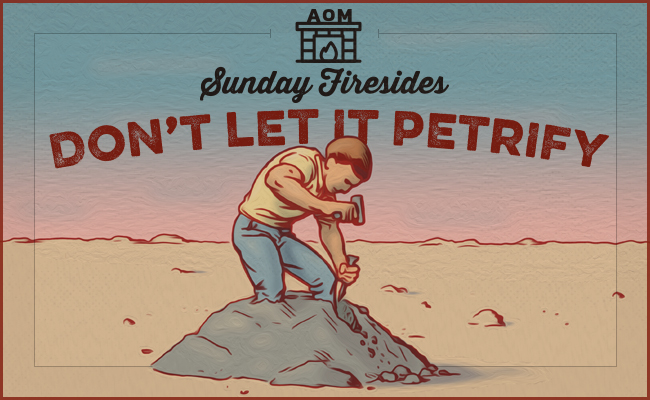
As you grow older, your body grows stiffer. It gets harder to bend, to stretch, to contort yourself into “unusual†positions — unusual in that they involve something beyond sitting, standing, and reaching for the Special K from the cabinet. Make such a move and you can almost hear the crumbling of an invisible patina of stone which had begun encasing your limbs.
Your mind and personal habits grow stiffer with age as well. Beliefs harden, becoming impenetrable to new information and perspectives. Routines calcify, creating a rocky soil from which new relationships, pursuits, and vistas cannot grow.
You can find that certain capacities, like, say, the ability to enjoy poetry or reflect on big questions — which were once vitally alive — have fossilized, becoming artifacts of the past rather than possessions of the present.
After the waning of youth, the cells of both body and soul ever threaten to be replaced with a sludgy sediment; we become set in our ways like concrete becomes set in a mold.
This transformation is not inevitable, however, and the trick to thwarting it is to keep the mixture moving, to inhabit a perpetual state of growth.
Figuring out what you do and do not like, and leaning into the former, is one of the great privileges of adulthood. Committing to principles from which you never plan to waver creates the backbone of mature character. But while the settling of such things should serve as a foundation on which to stand, the figure atop it should not yet be a statute. One should not become a monument to the past — “Here lies all the insights I’ll ever discover, all the spiritual experiences I’ll ever have, all the physical feats I’ll ever achieve, all the places I’ll ever explore†— until this life is through.


